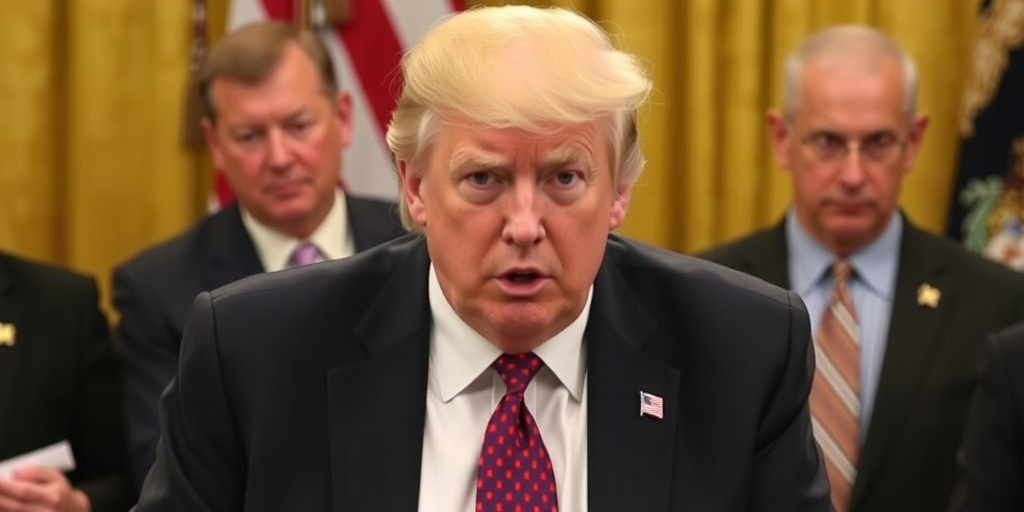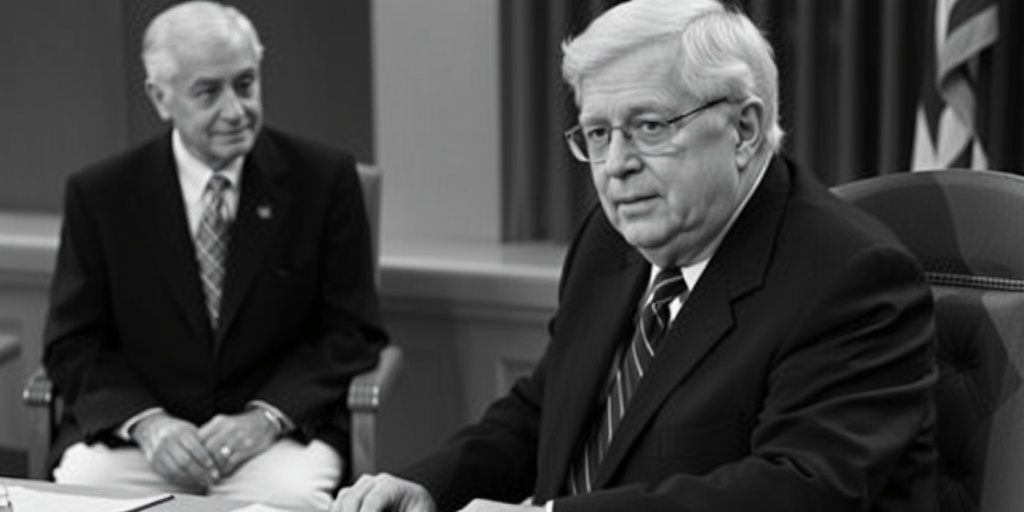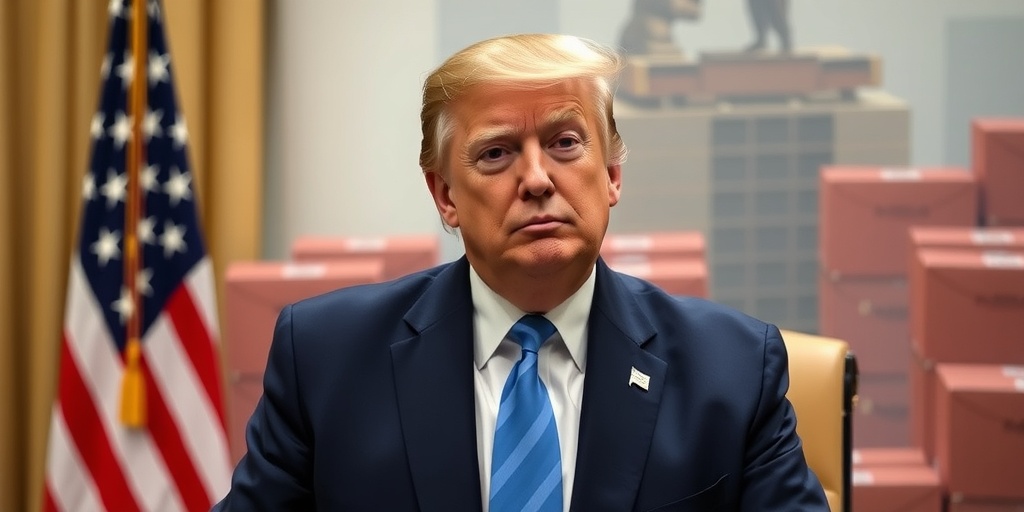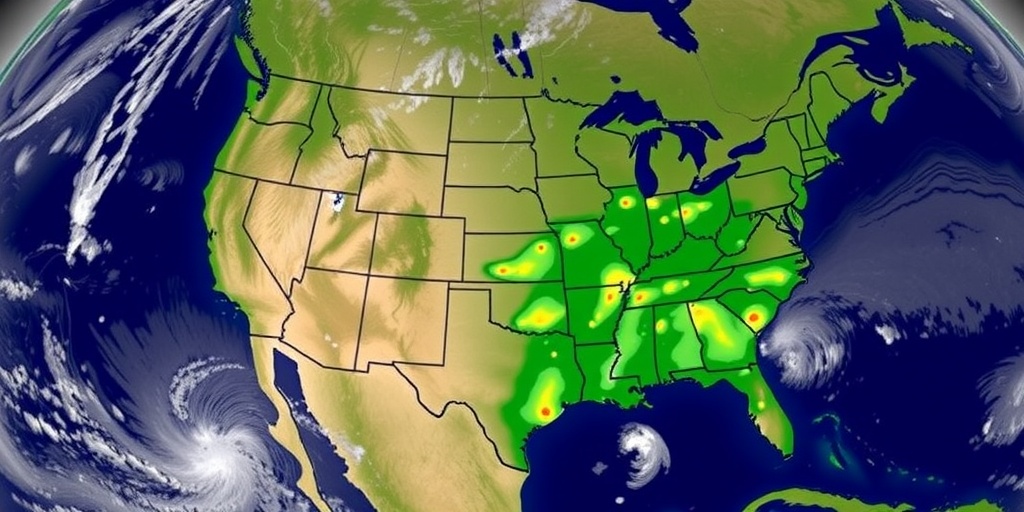Now Reading: Johnson Risks Job to Support Ukraine Aid, Then Backs Trump
-
01
Johnson Risks Job to Support Ukraine Aid, Then Backs Trump
Johnson Risks Job to Support Ukraine Aid, Then Backs Trump

Mike Johnson’s Political Shift: From Ukraine Supporter to Trump’s Ally
In a dramatic turn of events, Speaker of the House Mike Johnson has shifted his stance on Ukraine, a move that reflects broader changes within the Republican Party under former President Donald Trump. Johnson, who spent a sleepless night last spring grappling with the repercussions of supporting a more than $60 billion aid package for Ukraine, has now aligned himself with Trump’s new approach that centers on distancing the U.S. from Ukraine and fostering a closer relationship with Russia.
Last year, Johnson faced turmoil as he prepared to introduce legislation aimed at continuing financial support for Ukraine amid its fight against Russian aggression. His wife, Kelly Johnson, recounted how the couple feared his political career might be over because of this decision. That night, he spent hours praying and ultimately resolved to follow his conscience, believing it was vital to back Ukraine—a stance he was willing to risk his position for. He expressed to his colleagues that he wanted to align himself with the "right side of history."
Fast forward less than one year, and Johnson has undergone a remarkable transformation. His initial resolve to support Ukraine has been replaced by a narrative that echoes Trump’s rhetoric, which includes blaming the U.S. intelligence community for the outbreak of war and labeling Ukrainian President Volodymyr Zelensky as “a dictator.” This shift highlights a broader capitulation within the GOP, as even prominent supporters of a hardline stance against Russia now embrace a more favorable view of Trump’s policies.
This newly aligned position came to the forefront during a turbulent meeting in the Oval Office, where Trump reportedly chastised Zelensky and demonstrated a dramatic shift in diplomatic relations between the U.S. and Ukraine. Following the meeting, Johnson took to social media, praising Trump for his assertive leadership, stating, "Thanks to President Trump— the days of America being taken advantage of and disrespected are OVER." His pivot marks a stark contrast to the past, when Johnson actively supported Ukraine, even involving himself in secret discussions with the Biden administration to secure aid.
One revealing aspect of Johnson’s earlier resistance to Trump’s anti-Ukraine rhetoric included tense negotiations with Republican Representative Marjorie Taylor Greene, who openly threatened to remove him from his position if he pursued the Ukraine aid bill. During their contentious discussions, Greene warned Johnson to be skeptical of the intelligence that supported U.S. aid, invoking previous misinformation about weapons of mass destruction in Iraq as a cautionary tale.
In those private discussions, Johnson found himself caught between his commitment to support Ukraine and the rising skepticism among hard-right lawmakers like Greene, who dismissed the legitimacy of the intelligence community. Despite enduring backlash, Johnson insisted that failing to aid Ukraine would lead to disastrous consequences, including the potential for World War III—a sentiment he voiced to Greene during their standoff.
Greene, however, remained resolute in her convictions, stating that anyone who relied on intelligence briefings was part of the “deep state.” This consistent public distrust ultimately pushed Johnson to reconsider his alliances and narratives.
The challenges Johnson faced during this internal party struggle underscored the precariousness of his role as Speaker. With a slim majority, he recognized that his leadership depended on maintaining relationships with all factions within the Republican Party. As he attempted to forge a path supportive of Ukraine, he ironically found himself on the opposite side of the ideological divide that he once championed.
This recent alignment with Trump’s rhetoric is evident in Johnson’s current statements, where he points to Zelensky’s lack of electoral processes during conflict as a talking point, mirroring Kremlin propaganda. Johnson contends that he has not changed his fundamental beliefs about Ukraine, framing his previous support as necessary to position Trump for potential negotiations with Russia to establish peace.
In conclusion, Mike Johnson’s transformation from a supporter of Ukraine to an ally of Trump illustrates a significant shift within the Republican Party. As he navigates between competing factions, Johnson’s political journey serves as a stark reminder of the evolving dynamics in U.S. foreign policy and the power struggles within the party that seeks to redefine its identity.
Stay Informed With the Latest & Most Important News
Previous Post
Next Post
-
 01New technology breakthrough has everyone talking right now
01New technology breakthrough has everyone talking right now -
 02Unbelievable life hack everyone needs to try today
02Unbelievable life hack everyone needs to try today -
 03Fascinating discovery found buried deep beneath the ocean
03Fascinating discovery found buried deep beneath the ocean -
 04Man invents genius device that solves everyday problems
04Man invents genius device that solves everyday problems -
 05Shocking discovery that changes what we know forever
05Shocking discovery that changes what we know forever -
 06Internet goes wild over celebrity’s unexpected fashion choice
06Internet goes wild over celebrity’s unexpected fashion choice -
 07Rare animal sighting stuns scientists and wildlife lovers
07Rare animal sighting stuns scientists and wildlife lovers





















